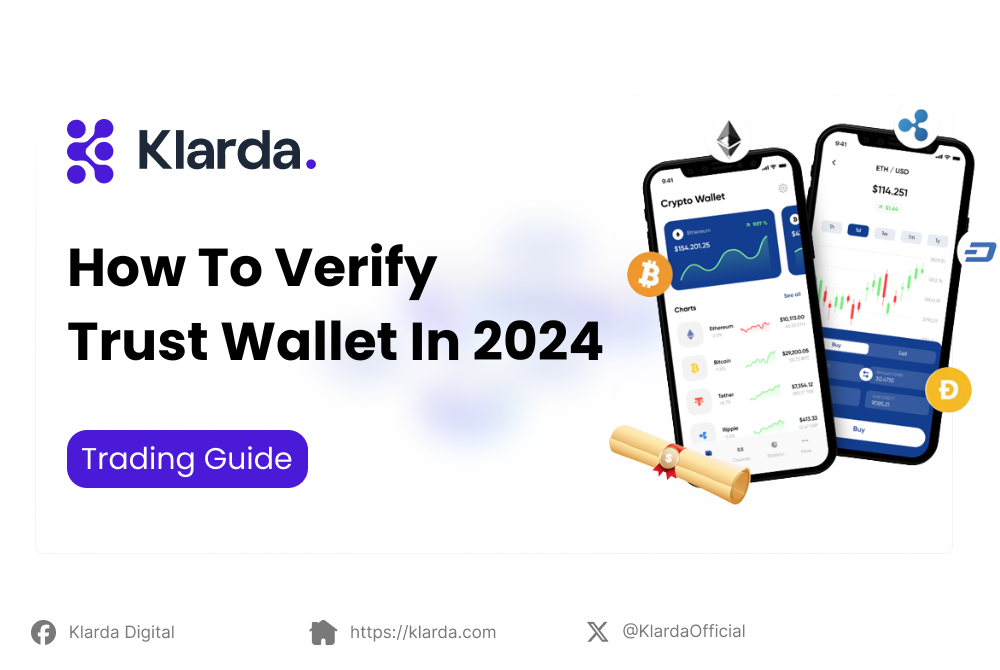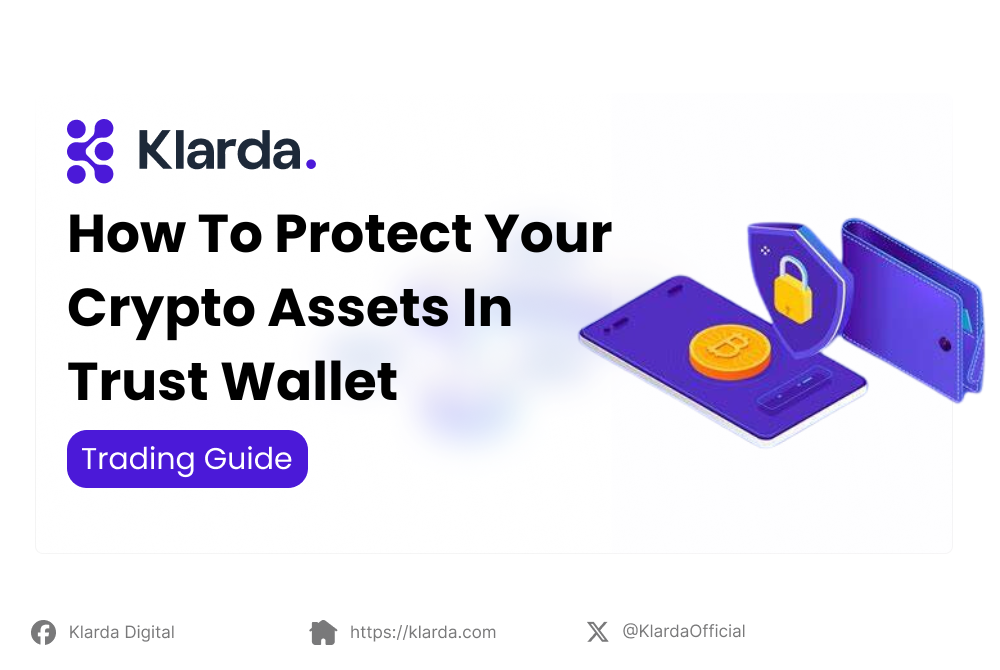How To Verify Trust Wallet In 2024
Beware of phishing scams on how to verify Trust Wallet to avoid suspicious emails claiming in 2024.
Trust Wallet distinguishes itself from typical financial apps by eschewing identification verification requirements, offering users a hassle-free experience. This comprehensive article addresses various questions about Verify Trust Wallet's unique process include:
- Does Trust Wallet need verification?
- How to verify Trust Wallet?

KEY TAKEAWAYS
- Trust Wallet prioritizes user privacy and doesn't require traditional identity verification.
- Verifying tokens and DApps can help you make informed decisions.
- The ultimate responsibility for safeguarding your cryptocurrency in Trust Wallet lies with you.
Your recovery phrase is your most crucial piece of information – protect it fiercely.
VERIFICATION WITHIN TRUST WALLET
It's important to understand that there are two main areas where "verification" might come into play with Trust Wallet:
Verifying Your Identity: Trust Wallet is a non-custodial wallet, meaning you have complete control over your private keys and assets. Trust Wallet does not collect your personal information or require any Know-Your-Customer (KYC) verification procedures. This approach enhances your privacy and autonomy.
Verifying Tokens and DApps: When interacting with decentralized applications (DApps) on various blockchains, you may come across tokens labeled as "verified." This verification indicates that the token's contract code has been audited or reviewed. Verified tokens offer a degree of trustworthiness, although it's always essential to conduct your own research before investing.
IDENTITY VERIFICATION IN TRUST WALLET
Trust Wallet operates without necessitating any form of identification since it refrains from collecting personal data or managing users' funds. The app serves solely as a tool for executing transactions on decentralized platforms. Its sole verification feature is the 12-word recovery phrase, employed solely for security reasons. It's crucial to disregard any messages or emails requesting verification, as they could potentially be phishing attempts.
TRUST WALLET VERIFICATION
Trust Wallet refrains from sending verification emails or soliciting personal information from its users. If you receive an email claiming to be from Trust Wallet or requesting verification:
- DO NOT CLICK ON ANY LINK OR BUTTON in the email.
- This is likely a phishing attempt targeting Trust Wallet users.
- Trust Wallet executives only contact users in response to initiated customer support requests.
Exercise caution and avoid interacting with suspicious emails to protect your Trust Wallet account from potential phishing scams. To have a comprehensive and constantly updated view on how to verify Trust Wallet account, stay informed with Klarda Marketplace!
HOW TO PROTECT YOUR CRYPTO ASSETS IN TRUST WALLET

While Trust Wallet doesn't require your personal information, taking these security precautions is paramount:
Your Recovery Phrase is Everything: During wallet creation, you'll receive a 12-word recovery phrase. This phrase is the ultimate key to accessing your funds. Never share it with anyone, and store it securely offline. Consider writing it down on paper and keeping it in a safe place.
Beware of Phishing Scams: Fraudsters may try to trick you into sharing your recovery phrase or private keys through fake websites, emails, or social media messages. Always double-check the URLs of websites you're interacting with, and never respond to requests asking for your sensitive wallet information. Trust Wallet will never ask for your recovery phrase.
Exercise Caution with DApps: Before connecting your Trust Wallet to a DApp, thoroughly research the project and its reputation. Be wary of DApps that promise unrealistic returns or require you to send cryptocurrency upfront to participate.
Update Regularly: Keep your Trust Wallet app updated to benefit from the latest security patches and features.
Consider a Hardware Wallet: For extra security, particularly if you are holding large amounts of cryptocurrency, use a hardware wallet (like Ledger or Trezor) in conjunction with Trust Wallet. Hardware wallets store your private keys offline, giving an additional layer of protection.
CONCLUSION
As the cryptocurrency landscape continues to evolve, safeguarding your digital assets is paramount. Trust Wallet provides a secure and user-friendly platform for managing your crypto holdings, with minimal verification requirements and robust security features.
By understanding the importance of how to verify Trust Wallet with the 12-word recovery phrase, recognizing potential scams, and adhering to safe verification practices, you can navigate the world of Trust Wallet verification process with confidence and peace of mind, knowing that your assets are protected against unauthorized access and fraudulent activities.
Updated 9 months ago